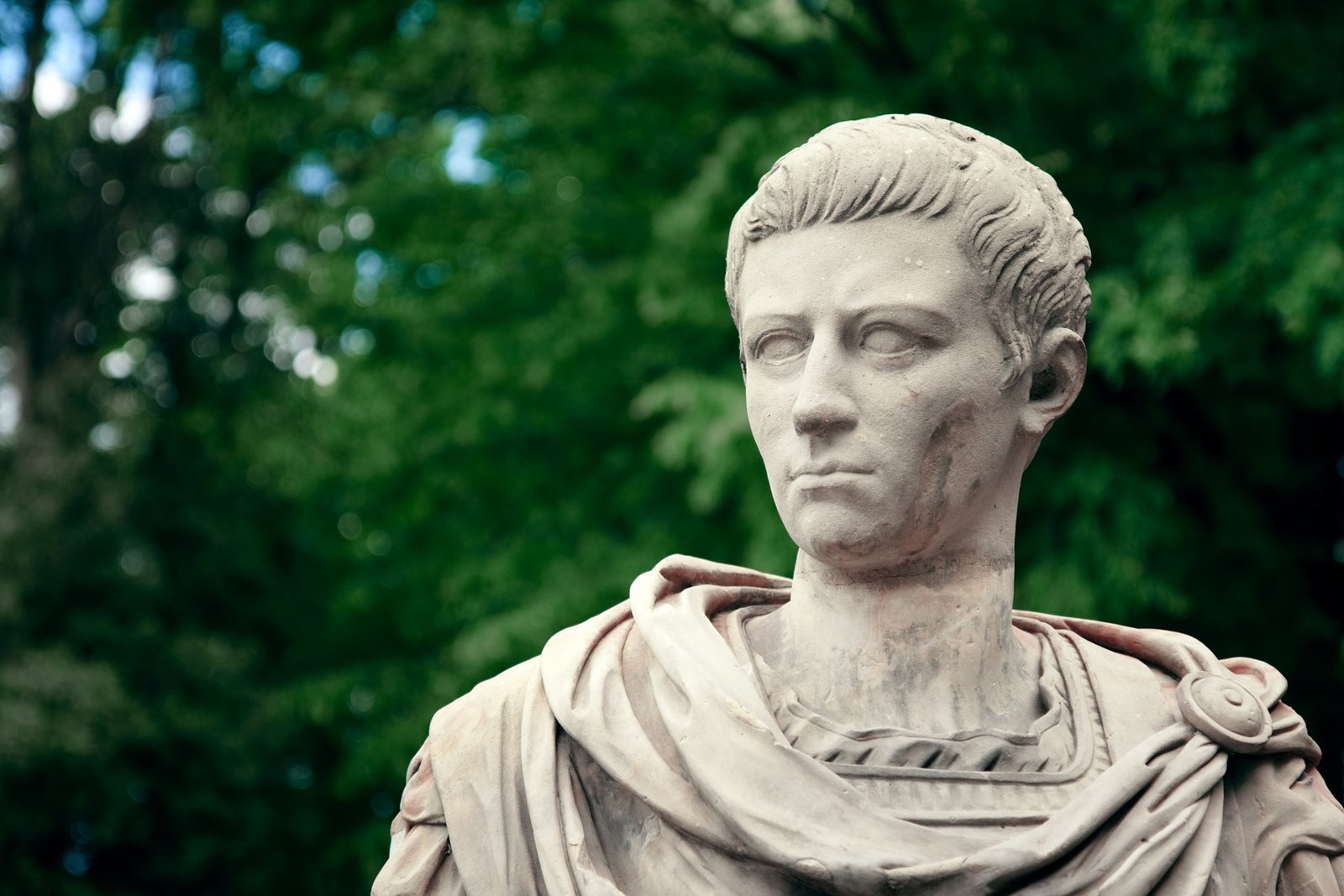
Caligula, a captivating figure from ancient history, has long interested historians and provoked the interest of those seeking to uncover the truth behind his mysterious persona.
In this blog post, we leave on a captivating journey into the existence of this infamous Roman Emperor, unveiling more than 10 fascinating facts that shed light on his unusual behavior and controversial actions.
Join us as we dive into the depths of history and unravel the complexities of Caligula’s legacy, a story that keeps on touching off interest and sparks lively discussions.
Interesting Facts about Caligula
Fact #1: Caligula’s Real Name
Did you know that Caligula, the scandalous Roman emperor, was born with the name Gaius Julius Caesar Germanicus?
Interestingly, his well-known nickname “Caligula” was given to him during his childhood in view of his charming little military boots known as “caligae” that he wanted to wear.
These miniature boots became a distinctive part of his identity and ultimately contributed to his unique moniker. It’s fascinating how a childhood nickname can shape the perception of an individual throughout history.
Fact #2: Early Life and Influence
Caligula’s upbringing was immersed in the world of Roman politics and influence.
Being the son of Germanicus, a highly esteemed general and beloved figure, he was exposed to the intricate workings of the Roman Empire from a tender age.
This early exposure to the centers of power and authority left a lasting impression on Caligula, shaping his understanding of governance and greatly influencing his actions and decisions during his reign as Emperor.
- Read also: Roman Emperor Commodus: The Worst Emperor in Roman History
- Read also: Legendary Heroes of the Arena: Famous Roman Gladiators
Fact #3: Rise to Power
Following the death of Emperor Tiberius, the young Caligula expected the role of Emperor at the young age of 24.
In the early of his rule, there were indications of commitment as he showed thoughtful acts and acquired popularity among the majority.
However, as time unfolded, Caligula’s reign took a tumultuous and unpredictable path, marked by a disturbing shift in his behavior and decision-making.
Fact #4: Eccentric Behavior
Caligula’s eccentricities are etched in history, leaving an indelible mark on his reign.
His behavior was characterized by extravagant displays of wealth, the construction of opulent structures, and even the appointment of his horse, Incitatus, as a consul—a decision that defied conventional expectations and bewildered the Roman elite.
Fact #5: Tyrannical Reign
As Caligula’s reign progressed, his rule took a dark and oppressive turn. His behavior became increasingly tyrannical, characterized by acts of cruelty and sadism.
He derived pleasure from public displays of violence, inflicting torture and execution upon individuals.
These erratic and violent actions struck fear into the hearts of his subjects and even garnered concern from the Roman Senate.
Fact #6: Building Projects
Caligula’s reign was marked by his ambitious building projects, which included the creation of magnificent palaces and impressive public works.
Among his notable endeavors was the construction of a remarkable floating bridge across the Bay of Baiae, serving as a symbol of his triumphant entry into Rome.
Fact #7: Caligula’s Love for Games and Entertainment
Caligula had a deep passion for games and entertainment, and he spared no expense in organizing extravagant spectacles to captivate the Roman people.
From thrilling chariot races to fierce gladiatorial contests, he sought to provide the masses with unforgettable moments of excitement and enjoyment.
These grand events were not only a testament to his wealth and influence but also a means to solidify his popularity and control over the empire.
Fact #8: Assassination
Caligula’s despotic rule ultimately resulted in his untimely demise.
Faced with his oppressive regime, a coalition of senators plotted against him, driven by a desire to liberate Rome from his tyrannical grasp.
On the fateful day of January 24, 41 CE, their plan came to fruition, and Caligula was assassinated, bringing an end to his tumultuous and divisive reign.

Fact #9: Damaged Reputation
Caligula’s reputation suffered greatly due to the accounts of his despotic rule and eccentric actions.
Various historical sources have portrayed him in a negative light, adding to the prevailing impression of him as a dictator and disturbed ruler.
These stories lastingly impact how he is remembered in history, establishing his legacy as a figure marred by controversy and infamy.
Fact #10: Historical Interpretations and Debate
The historical interpretation of Caligula’s reign is a subject of ongoing debate among scholars.
While some argue that the accounts of his behavior may have been exaggerated or biased, others emphasize the undeniable evidence of his cruelty and erratic rule.
The complex and enigmatic nature of Caligula’s character continues to captivate historians, leading to diverse perspectives and interpretations.
Fact #11: Influence on Popular Culture
Caligula’s life and reign lastingly affect popular culture, filling in as a source of inspiration for various works of literature, film, and art.
From grasping books to cinematic adaptations, his interesting story keeps on entrancing crowds and fills in as material for imaginative interpretation.
Fact #12: Legacy and Historical Significance
Caligula’s brief and turbulent reign made a permanent imprint on the archives of Roman history.
In spite of the fact that his activities were marked by cruelty and overabundance, his legacy fills in as a wake-up call about the perils of absolute power and the potential consequences of unrestrained power.
- Read also: A Glimpse into Ancient Roman Artifacts
- Read also: Top 7 Great Renaissance Artists
Conclusion
Caligula, a figure of historical interest and discussion, keeps on enthralling our interest.
As the Roman Emperor, his reign was marked by a blend of eccentricity, mercilessness, and political turbulence.
Exploring the intriguing facts surrounding Caligula’s life and activities gives us looks into the complexities of his personality and the wild time in which he lived.
Diving into the legacy of Caligula prompts us to contemplate the delicate idea of power and the significant effect that responsible leadership can have on shaping the course of history.



